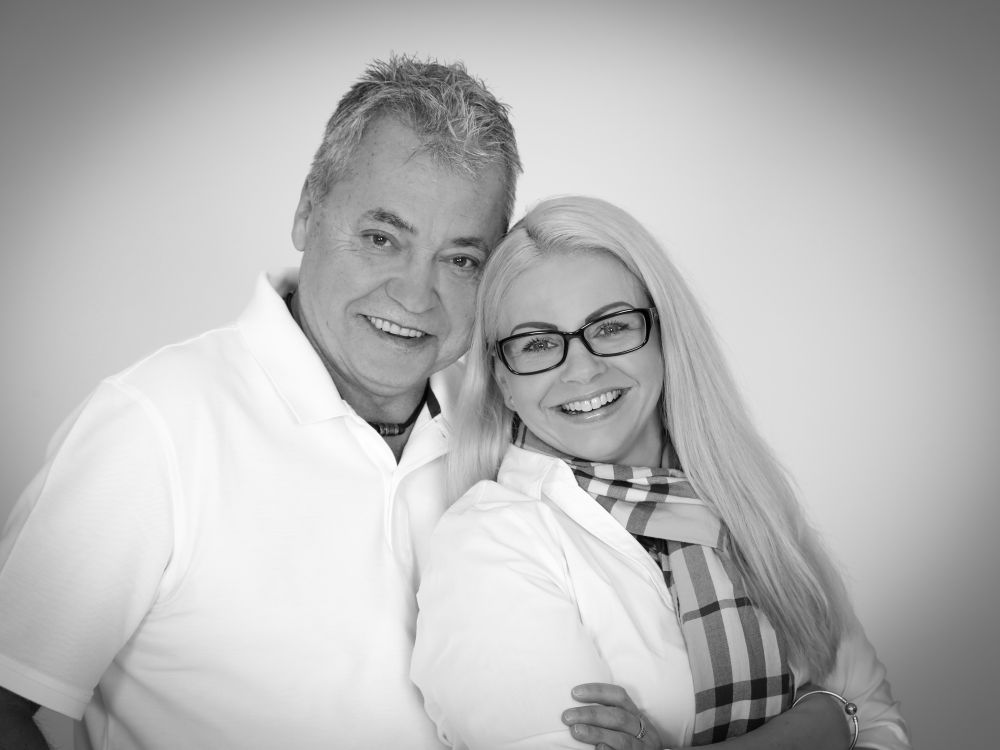At 38 years old, Nina Askani wasn’t looking for symptoms. But when she noticed irregular bleeding, she moved past self-diagnosis on Google and immediately asked her neighbor who worked in healthcare if she could recommend an OBGYN. This was Nina’s first step in taking control of her health and the beginning of her journey with cervical cancer.
“At the first appointment, the doctor took a biopsy right away and told me that it looked like cervical cancer,” Nina said. “I was shocked because I wasn't expecting it at all. I’d been stressed, always very busy and on the run. I even wondered if the stress was affecting my body. But it turned out, it was invasive cervical cancer. I just couldn’t believe it.”
When the doctor later called Nina to confirm the diagnosis of cervical cancer, she felt lost. She hadn’t studied up cervical cancer or what it would mean for her. She assumed she’d need hysterectomy, but had no idea what other treatments were available.
Nina counted herself lucky that several of her friends were nurses. She met with them, and together they discussed her diagnosis. They helped guide her back to a positive place, letting her know that her state of mind mattered when it came to treatment. She needed to choose hope.
After a referral, Nina went to see Dr. Emily Prendergast at Minnesota Oncology's Minneapolis Clinic. They immediately clicked. “After meeting her, I can say right away that she is amazing,” Nina said. “Right at the beginning, I knew this was a physician I could trust. She gets it.”
Choosing the Right Cervical Cancer Treatment Plan
When Nina saw Dr. Prendergast, she learned that her cervical cancer hadn’t spread or affected her inner organs. With this knowledge, Nina and Dr. Prendergast spoke in depth about her treatment options, goals, and the possible side effects. They worked together to determine the best possible treatment based on Nina’s situation and scheduled her surgery.
“The day of surgery,” Nina said, “I went into the hospital in the morning, and all the doctors and nurses were great. I really felt like they cared about me. Then Dr. Prendergast walked into the room and seeing her just gave me incredible faith and hope.”
Nina woke up from surgery filled with relief. She was ready to begin a new chapter in her life. During the first few weeks of recovery, Nina leaned on her husband and friends, careful not to overwork herself. Day by day, she improved. Prior to surgery, Nina would walk 6-8 miles with her dog, and she worried it would be a long time before she could do it again. At 6 weeks, Nina was back to her daily routine.
Recently, Nina started radiation therapy. As part of her treatment plan, she will do a combination of radiation therapies to ensure that her cancer is gone.
Early Detection and Screening Key for Successful Cervical Cancer Treatment
Nina credits her early decisions with helping find the cancer before it spread. “I had heavy bleeding for about three weeks and recognized immediately that it was different from anything I’d experienced before,” she said. “I called to make an appointment right away. I didn’t wait a few weeks or months. When you know something is wrong, you just can’t wait.”
Nina recommends that everyone keep up to date on their regular screenings, including pap exams and HPV testing. Knowing your body and being aware when things change is also important.
In addition to the support and caregiving her husband has provided, Nina says she is grateful for her Minnesota Oncology physician. “I’m so grateful to Dr. Prendergast,” Nina said. “I appreciate everything she’s done for me and how she’s listened to me. She’s my hero.”




